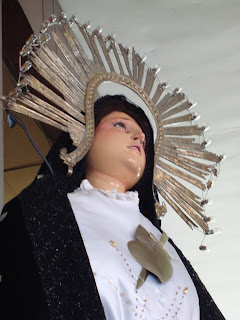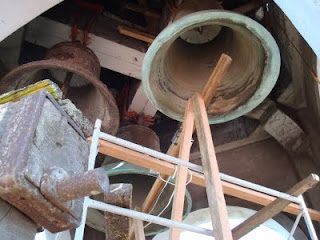getting a free haircut
If compensation can be used as a measure for how beautiful a sermon is, then my most beautiful homily happened when I blessed a beauty parlor years back. Surrounded by beauticians, I said something like this: “After God created man and woman on the sixth day, and ‘God looked at everything that he had made and found it very good,’ but what you will be doing in this place is to make things better still. God made everything beautiful to look at, but you here will make them more beautiful still.” They were so delighted with what they heard, they never realized until then how honorable work in the parlor was. A doctor can only restore health and life, but a parlorlista can improve and even remake your hair and face including the confidence brought about by a more beautiful you! For what they thought were such godly and enriching thoughts, aside from the usual offering, I was offered a free haircut and a facial spa to boot!



